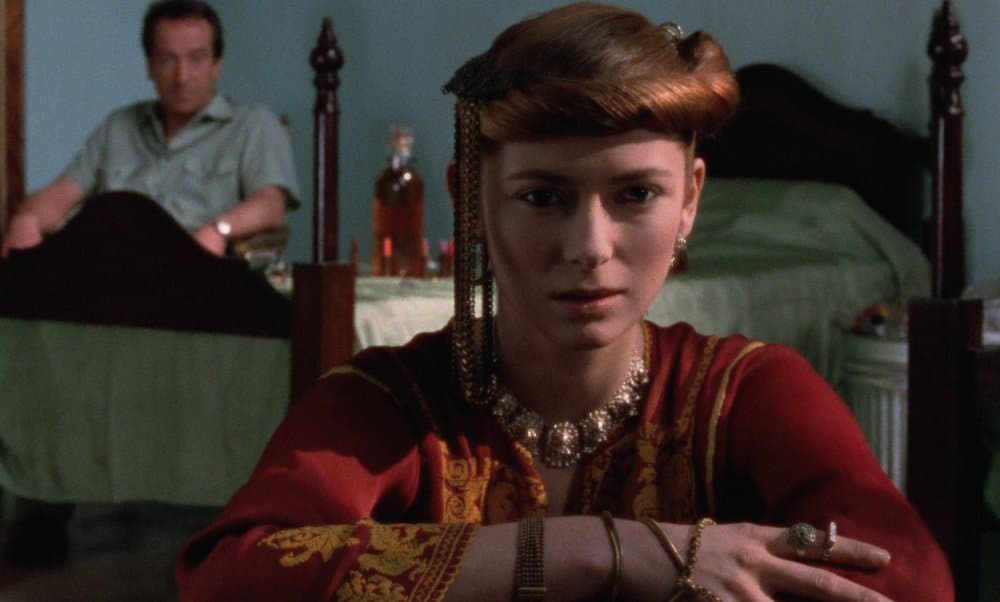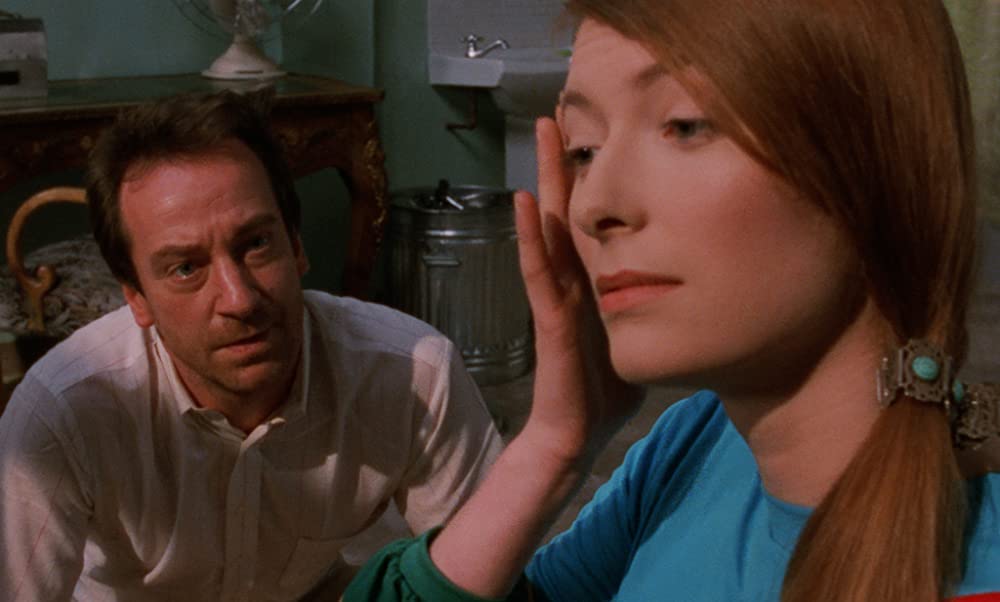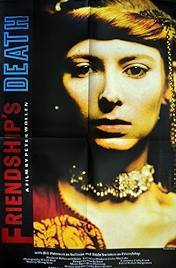There’s been a slight revival of interest in Peter Wollen’s Friendship’s Death since the London Film Festival chose it as one of the items they wanted to pluck from obscurity by showcasing it in their 2020 Treasures section, alongside films such as The Cheaters, an Australian silent thriller from 1929, and Chess of the Wind (aka Shatranj-e Baad), a 1976 film shining a light on pre-revolutionary Iran.
Beside that lot Friendship’s Death – British, from 1987 and starring quantities Bill Paterson and Tilda Swinton – seems a bit of a damp squib, even if it was one of film theorist Wollen’s few directorial credits.
A loose description isn’t likely to cause priapic excitement either – old-school journalist Sullivan (Paterson) is holed up with a woman he’s just met in Jordan, while the civil war rages and the PLO try one of their periodic attempts to change the political dynamic.
Meanwhile, inside the hotel where they’re stuck, Sullivan and Friendship have a lot of time to chat, which they do, pretty much non-stop. The end.
There is more to it than that. Surprisingly, Friendship tells Sullivan that she is in fact a robot sent by an alien civilisation. She was heading to the Massachsetts Institute of Technology but got blown off course and ended up in this war zone. As far as Sullivan is concerned, Friendship is either nuts or a spy but she’s easy on the eye and interesting to talk to, and so he indulges her. There’s not much else to do.
And so they talk. About the PLO, her planet, where all life as we know it is dead and only the technological survives, about the “nuclear winter” that wiped everything out and about how organic life forms are in any case just a “lift-off phase” for the next phase in evolution – the electronic phase. En passant, Friendship informs Sullivan that not only is she incapable of sex (nothing down there, no liquids in her body anyway) but she finds the whole concept of “intromittent organs” just kind of odd.
This all leads on to a conversation about pleasure as somehow being definitive of human existence, in what might be called a Captain Kirk glitch in the philosophical matrix, though to be honest I think I was hooked by “intromittent organs”, pronounced by Swinton with just enough precision that we didn’t hear “intermittent organs” by accident, but with just enough looseness that we know Friendship speaks like this all the time.
They are a good match this Scottish couple, Paterson and Swinton – he already the master of rhythmic Caledonian delivery, she almost unrecognisably puppy-fatty and new to the biz (she’d debuted in Derek Jarman’s Caravaggio the year before) but already mostly in command of that Swinton hauteur – intermittently, you could say.
Writer/director Peter Wollen, who only died not long ago (December 2019) aged 81, was supposedly one of the writers on Antonioni’s The Passenger (I say supposedly because there are a lot of fingers in that pie) and in my more fanciful moments I could see Paterson and Swinton as later versions of Jack Nicholson and Maria Schneider, who also spend a fair deal of time chinwagging in a hotel room at one point.
It’s all set in one room, and shot in a boxy almost-TV format, but Wollen makes an effort to stop things getting too stagey – the camera starts each scene from a different position, the visual suggesting other changes. And the lighting is gorgeously done, washes of complementary colour laid on by the obviously talented Polish cinematographer Witold Stok.
Even so, staginess persists. Or a mannered style, if you prefer. Considered thoughts are expressed in proper sentences and Paterson and Swinton never speak over each other. No one says “er”. It is a demonstration of the play (which is what it is) as a vehicle for ideas rather than as an excitement or entertainment. This was the 1980s and though the avant garde was dead, its influence persisted as a postmodern chimera.
As to what the idea is… at one point Friendship speaks in Arabic and even dons what looks slightly like Palestinian headgear, so she might be the “alien” speaking truth unto power, except that there is precious little of that.
There is some prescient technological stuff, particularly towards the end when Sullivan’s daughter – in an epilogue scene – describes digital storage technology in a way that seems much more 21st century than 1987 (floppy disks were then still cutting edge).
Evocative, charming, well acted… all very interesting. The LFF must have chosen it for other reasons…
Friendship’s Death – watch it/buy it at Amazon
I am an Amazon affiliate
© Steve Morrissey 2020


